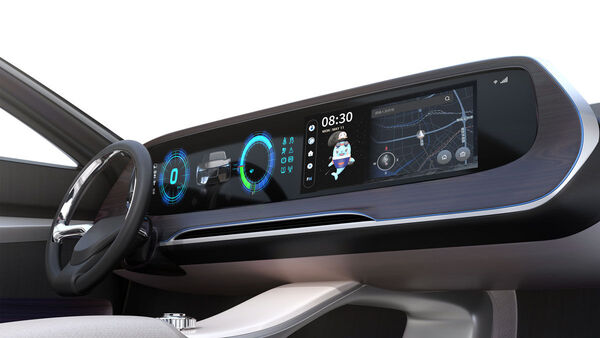Volkswagen, Nio, GM and Xpeng rely on products from suppliers Desay SV and Huayang in the cockpit. A few years ago, they were completely unknown.
The two Chinese suppliers Desay SV and Huayang were virtually unknown just a few years ago. Now they are preparing to conquer their home market for “smart cockpits”. With their central control units, LCD screens and head-up displays (HUD), they are competing with system suppliers such as Bosch and Continental.
The rapid digitalization of e-cars in all areas and the preference of Chinese drivers for large, modern screens and lots of high-tech behind the wheel have caused the market to explode.
Formerly a low-tech provider, now a Continental competitor
At the same time, the technological barriers to entry for manufacturers have fallen. Chinese companies that until recently offered “low-tech” products such as CD players or car loudspeakers have become formidable players in the intelligent car market virtually overnight.
A particularly striking example of this is Desay SV, which has been going head-to-head with Continental for first place in LCD instrument panels in the People's Republic since the beginning of this year. Both companies installed more than 36,000 units in January and February 2024. With a market share of 12.8 percent, Continental was only marginally ahead of Desay SV with 12.6 percent.
Just five years ago, Desay SV mainly built traditional car parts and audio systems for cars with combustion engines. But when the 'smart cockpit' suddenly became popular in China in 2018 and electric cars such as the ES8 from Nio appeared in the spotlight, Desay SV managers boldly embraced the new trend of integrating various high-tech components in the cockpit.
From China to Thuringia
Desay SV has succeeded impressively in its transformation from a traditional supplier to a system provider for smart cars. Not only do its customers now include almost all major OEMs in China, but the company's market capitalization has also grown to over 100 billion yuan (approx. 13 billion euros).
With the momentum from China, Desay SV is also trying to find its position in Europe. In Thuringia, the company is investing in a test laboratory for displays and a measuring chamber for antennas. A production plant is also planned in Europe, according to internal sources.
More competition for Qualcomm
Chip manufacturers Mobileye, Nvidia and Qualcomm are still ahead with their products when it comes to the rapidly growing demand for more computing power to integrate various components such as lidar, ADAS cameras, electronic rear-view mirrors and HUDs.
However, Chinese suppliers are currently catching up fast when it comes to all other hardware and software in the interior. “The intelligence of automobiles has changed the traditional power structure. The technical barriers of the original Tier 1 suppliers no longer exist and are being replaced by the integration effect of technology stacks,” writes the Chinese specialist portal 36K about an industry in upheaval.
Alternative market for automated driving
“The smart cockpit has been recognized as an area that is easier to commercialize than autonomous driving,” the analysis continues. This has offered traditional automotive suppliers an opportunity to manage their transformation into the age of e-mobility.
Alongside Desay SV, the Chinese Huayang Group is a particularly interesting example of such a transformation. The company used to make a good living from the manufacture and sale of CD players. At the same time as the market for cars with combustion engines gradually began to shrink, in-car entertainment also became digitalized.
Increasing pressure on Bosch, Continental & Co.
Like Desay SV, Huayang spent large sums on research and development. “Both companies were forced to start their transformation very quickly,” says 36K, describing the moment of crisis around five years ago.
Huayang occupies the new market for electronic systems in interiors. The supplier has now taken on a notable role in domain controllers, HUD and the new AR-HUD.
In summary, it can be said that a new, particularly intense phase has begun in the battle for the cockpit in China. Chinese suppliers such as Desay SV, Huayang and Autolink are increasingly competing with tier 1 suppliers Bosch, Continental & Co. The days when good relationships with individual car manufacturers were a key competitive advantage are definitely over.


Follow us